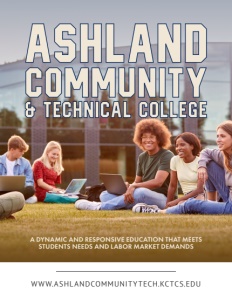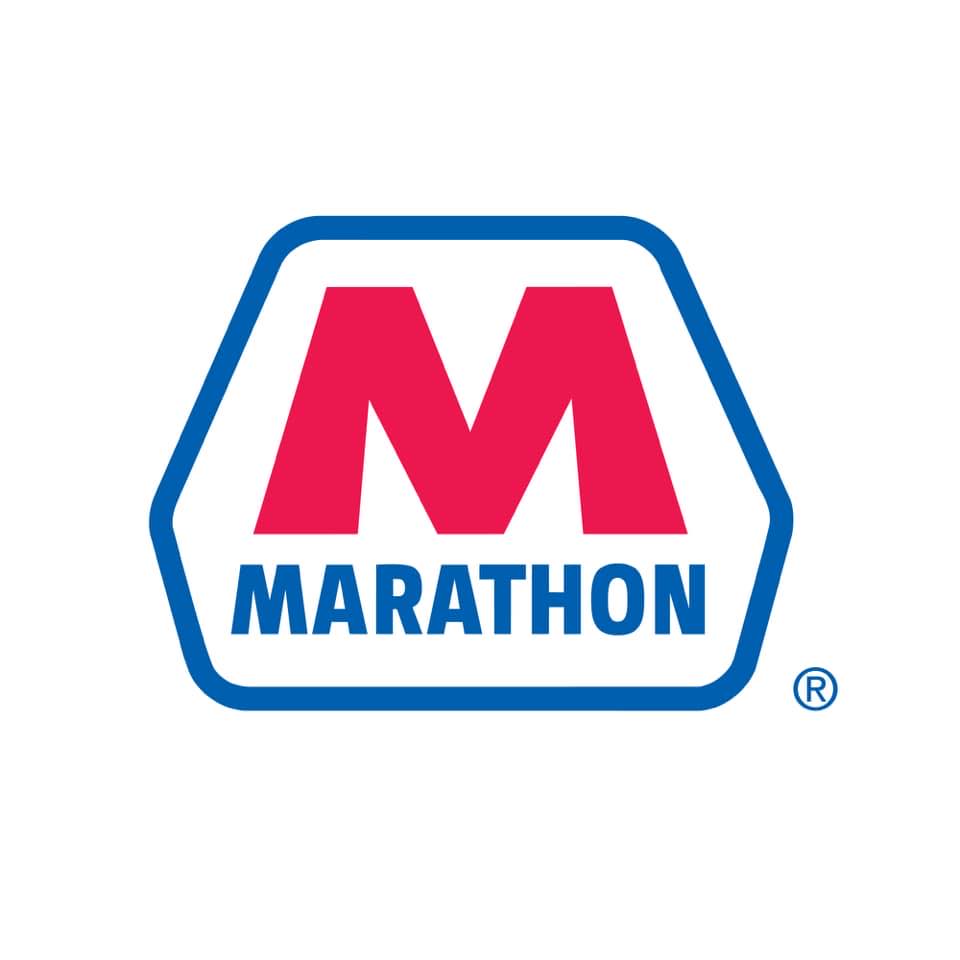Ashland Community & Technical College
A Dynamic and Responsive Education that Meets Students Needs and Labor Market Demands
Preparing Kentucky’s budding talent through workforce solutions
Ashland Community and Technical College (ACTC) celebrates a storied history that began in 1938. As one of the oldest community colleges in Northeastern Kentucky, only one other institution in the region shares its founding year.
Over the decades, ACTC has grown deep roots and personal connections that define the college. In 1998, Ashland transformed through a merger with a technical college, expanding offerings and marking an evolution into a comprehensive technical and community college.
The merger was not just a blending of facilities but a fusion of ambitions, expanding the school’s scope and impact on educational services.
Stability and growth speak to Ashland’s programs’ combined appeal and relevance. This steadiness helps the school maintain a robust presence that drives the economy, influences state-wide employment readiness, and creates a stimulating learning atmosphere. With initiatives tailored to labor market information, ACTC ensures programs remain relevant and responsive to industry demands.
Enrollment Trends and Rolling Strategies
Adapting to societal needs, Ashland quickly morphs educational strategies and enrollment management to meet current job markets.
Despite the fluctuating dynamics in higher education, ACTC maintains stable numbers. Larry Ferguson, Chief Executive Officer, states, “Our 2022-23 enrollment remains relatively stable at 3,521, with a slight growth of 1.8% in the last semester.” This underscores a noteworthy resilience in student numbers amidst challenging times.
Responding to broader demographic shifts, including a projected decrease in graduates, Ashland’s recruitment and retention methods are fluid. The college focuses on high school seniors but casts a wider net by engaging adult learners and expanding outreach to all potential students. “Our strategy is holistic, aiming to reach everyone in our service area, not just high school graduates,” says Dr. Todd Brand, Chief Academic Officer.
Dr. Aaron Thompson of the Council for Post-Secondary Education noted that this inclusive approach is critical to elevating the current 53-54% post-secondary credential rate within the commonwealth to 60% by 2030.
Collaboration with nearly 100 companies over the past year illustrates ACTC’s engagement with the local economy. Such partnerships enhance the curriculum and provide vital pathways for students into the workforce, aligning education with labor market demands. This linkage is robust in healthcare and skilled trades, representing major employment areas within the Ashland district.
Ferguson states, “We are engaged in a multitude of activities, truly embodying the essence of a comprehensive technical and community college.” These efforts reflect a commitment to educate students and prepare them to enter high-demand job markets.
Through these strategies, Ashland maintains enrollment and adapts to the shifting educational landscape, ensuring it remains a vital contributor to the region’s economic and social vitality.

Program Offerings and Partnerships
Ashland Community and Technical College crafts robust academic programs and partnerships catering to the developing job market and the community it serves.
Vital sectors the college focuses on are healthcare and skilled trades, areas experiencing a demand for knowledgeable professionals. “Our largest sector is healthcare, and we have collaboratively launched programs in radiology and medical technology, ECG, and others,” Ferguson says.
With the highest number of welding booths in Kentucky, efforts in skilled trades are equal to those in medicine. Complemented by a broad range of training and state-of-the-art facilities and equipment, the institution implements nearly round-the-clock learning.
Partnerships play a crucial role in ACTC’s operational and educational programs. Through collaborations with 100 companies in the past year, the college successfully bridged the gap between education and employment, creating pathways that benefit students and the economy. These alliances bolster the college’s offerings and enhance its capacity to deliver specialized workforce training.
A standout in Ashland’s partnership portfolio is the Second Chance Pell project (SCP). Ferguson states, “Currently, we are working on providing services to our prisons through the Second Chance Pell component, which helps incarcerated individuals transition into high-wage, high-demand jobs upon release.”
Pending approval from accrediting bodies and the U.S. Department of Education (DOE), the college will offer classes toward an associate arts degree at the prison starting this fall.
This is a poignant example of how education is a powerful tool for societal change and has the potential to affect hundreds of lives and families.
Continuous Improvement and Planning
ACTC carefully guides efforts to maintain quality education and to adapt and evolve in response to student and community needs.
The institution harnesses Covey’s Four Disciplines of Execution principles, a method that ensures activities align with overarching objectives. Covey’s framework helps officials focus on “Wildly Important Goals” (WIGs), which direct collective efforts toward specific ambitious outcomes.
WIGs are not just aspirational but integrated into the daily structure. Brand says, “We set goals, known as WIGs, and mobilize the entire college community – from faculty to administration – to work towards these goals.”
Central to planning and continuous improvement is workforce training, which Ashland regards as essential to its mandate. This ensures the college educates, prepares, and equips students with the skills to enter the workforce competently. Designed to meet current industry standards and anticipate future needs, programs prepare enrollees for successful careers in high-demand jobs.
Brand states, “Everything we do at ACTC is workforce training, and this philosophy is at our core.” This approach has yielded significant achievements. “Our current retention rate is close to 70%, and our graduation rate is close to 60%, which is remarkable,” says Ferguson.
ACTC’s focus on continuous improvement and pivotal planning forms its mission’s backbone, driving it towards excellence in education and community service.
Technology Integration and Infrastructure
Ensuring students and staff are equipped with the best tools for success, Ashland College prioritizes integrating current technology across academic and administrative frameworks,
Classrooms are outfitted to support online learning, which became critical during the COVID-19 pandemic. “We have a firm commitment to technology. We can go virtual any time,” states Ferguson.
Beyond virtual capabilities, the college uses tech for a range of purposes, including predictive analysis of enrollment trends and enhanced student communication. These tools are crucial for maintaining efficiency and responsiveness, allowing for a dynamic approach to management and student engagement.
ACTC invests in upgrading program offerings, which is vividly illustrated in the manufacturing and health sciences fields. Notably, the college boasts one of only two 3D metal printers in the entire commonwealth, placing it at the forefront of technological education.
Further enhancing infrastructure, Ashland received a state grant to construct a top-tier simulation lab for the health science programs. This facility will include advanced virtual reality (VR), providing immersive and interactive learning experiences critical in the field.
Through these and similar initiatives, ACTC supports its educational visions with modern technology, ensuring learners are well-prepared for a workforce where tech proficiency is increasingly indispensable.

Community Engagement and Impact
Ashland’s extensive non-profit involvement is a cornerstone of its mission, emphasizing education’s role in broader social impact. “We have a communications plan and are heavily involved in non-profits through our foundation,” Ferguson says, highlighting the structured approach ACTC takes to ensure contributions are meaningful and impactful.
The college cultivates and maintains strong relationships with charities and community partners. This network, managed through a comprehensive Customer Relationship Management (CRM) system, allows the school to track and optimize interactions and engagements.
These partnerships enhance the educational experiences of students and reinforce the school’s role as a community pillar.
Furthermore, Ashland’s commitment to the region is underscored by its participation in local economic development. “We conducted an external analysis, and our total economic impact is $176 million for our service area,” states Ferguson. This incredible figure reflects the institution’s influence over the economy, not just as an educator but as a major financial driver.
The college is a catalyst for community growth and improvement, leveraging resources and relationships to build a thriving environment.
Tech integration and infrastructure investment underscore Ashland’s role as a leader in innovation and workforce readiness. The school’s partnerships and use of communications ensure the college remains connected and responsive to the region’s needs, making it an indispensable dual asset in educational and economic realms.
With strategic planning and continuous improvement, the school enhances offerings and expands its impact, providing skilled graduates in high-demand industries.
Through diverse programs and partnerships, Ashland Community & Technical College profoundly affects the district, providing education and training that encourages individual development and community growth.
Each chapter of Ashland’s history contributes to its resilience and adaptation. From its founding moments in the late 1930s to its strategic mergers and steady growth, the college has maintained a crucial role in shaping Kentucky’s educational landscape.
AT A GLANCE
Ashland Community & Technical College
WHAT: A 3-campus college that takes community seriously.
WHERE: Boyd County, West Kentucky, U.S.A.
WEBSITES: AshlandCommunityTech.kctcs.edu




